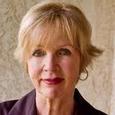Loyalty is essential for genuine family solidarity. But blind loyalty leads to family dysfunction.
A loyal family member is faithful to the family's traditions and honors its obligations. A loyal family member is emotionally present with support and encouragement during success or duress. These unwavering devotions are admirable and observable: just look at how a loyal family member helps another member during an illness, a financial crisis, the breakup of a marriage, death .
I admire family loyalty; I believe in it. However, I do not believe in blind family loyalty. Here's why.
A blindly loyal person follows lockstep and unquestioningly behind the family. Often, the marching is done unconsciously because one doesn't want to upset or anger another family member - a practice of "keep the peace mentality." Sometimes, the blindly loyal member will "go along" with something even when common sense and rationale plead with them to speak out. Sometimes, the blindly loyal member rejects hard core examples of a family's neurotic, enabling and codependent responses and that behavior hurts and damages their other relationships. How so?
Families operate on a continuum of being open with their communication or closed. Families with high functioning open systems can address any topic even when extremely painful, difficult or sensitive: loss, divorces, mental illness, secrets, alcoholism, various abuses, feelings of shame, affairs, death of beloved members, etc. These high functioning families feel confident and secure enough individually and as a family unit to discuss these circumstances and call them what they are. Individual expressions are not only permitted, they are encouraged. And while I agree it can be complicated and tricky at times where family confidences are concerned, it is not impossible to negotiate peaceful outcomes.
But, this isn't the case in the closed blindly loyal family. For example, in a blindly loyal family where the father was cold and dismissive to his children and now one member wants to let "the cat out of the bag" this member is often rejected by other family members. Blind family loyalty expects everyone to remember how terrific their celebrations were even when mom fell into the potato salad and knocking over Uncle Albert were regular occurrences. In other words, the blindly loyal family must turn "mom the sinner" into "mom the saint." And heaven protect the family member who challenges the accepted family view.
Where does blind loyalty originate? Usually, it's formed in early childhood to win parental approval and love because the worse thing for a child to feel is disapproved of, unloved and unwanted. We all want to believe we had the perfect family so we ignore the imperfections and transform family issues into virtues. The reality comes later when we see other people's families or we marry someone who is a more higher functioning emotionally than we. That's when we have a point-of-reference for comparison. But telling ourselves that something was perfectly wonderful when it was not is emotionally unhealthy and a form of denial or repression. Those feelings don't disappear; they go underground to get projected and played out later with coworkers, spouses, friendships and even with their own children. For example, the adult child who could never please mom, dad or both unconsciously feels never good enough and becomes highly reactive when criticism comes his or her way.
But with acceptance of what really occurred in your family system, coupled with insight and introspection and sometimes help from another sibling, relative, friend, spiritual director or professional, most of us can understand more fully the childhood we experienced and not turn around and misdirect that disappointment, anger or hurt onto others. Yes, my friends, we can become loyal "to our own experience" and that's a really good thing.
Remember, there is no shame in admitting that we have wounds from some family experiences and that we have wounded others, sometimes blindly so, but let's not make a blind loyalty into a family affair. Instead, let's accept that no family is perfect and most do the best they can. When we are open to this conscious shift from being a blindly loyal family member to an authentically loyal family member our families will be true places of refuge. Places where we can always return to heal a hurt, to laugh and cry, and, yes, sometimes even exhale a bona fide sigh of those memorable words: home sweet home.
I am a practicing Human Relations Counselor and Certified Group Psychotherapist and grief specialist for 31 years. My personal losses and clinical experiences give me a heart for my work. I'm available by phone or in person in Paoli, PA
http://www.MJHB.net
http://www.WhenEveryDayMatters.com
I have been a guest on National Public Radio and Healing the Broken Heart Internet, featured in The Phila. Inquirer, Suburban and Wayne Times, The Catholic Standard and Times, The Villanova Magazine, Catholic Star Herald, The Group Circle of the American Group Psychotherapy Association, TAPS Mag. honoring the brave who died serving in the Armed Forces. I write for Open To Hope Foundation, Ezinearticles and Selfgrowth and have a regular column on RadnorPatch.com. I conduct men and women's grief groups and Founded Mother's Finding Meaning Again, a support group for mothers who have lost children.
My book When Every Day Matters: A Mother's Memoir on Love, Loss and Life ( Simple Abundance Press) Sarah Ban Breathnach, Publisher said, "In her moving meditation on what matters most in life …M.J. Hurley Brant confronts the unthinkable with courage, compassion and candor…." And that this memoir "Is a gift of grace. For those who are hurting, a spiritual blessing awaits in between every line." Larry Kirshbaum, Publishers Person of the Year by Publishers Weekly said, "This is a book that will break your heart and put it back together again. This is a story of a daughter who wouldn't give up and a mother who never lost faith. The reader can't help but be inspired by the indomitable human spirit that resides within Mary Jane Brant."


